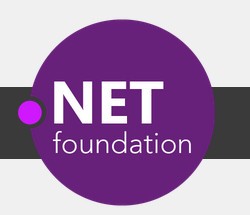MSBuild Engine Now Open Source
— March 26, 2015Microsoft took a significant step in the development ecosystem by announcing that MSBuild, its popular build engine, was being contributed to the .NET Foundation as an open-source project. This move marked a turning point for developers and software engineering teams globally, particularly those focusing on cross-platform development and open-source technologies. With the source code now accessible on GitHub, MSBuild is being actively ported to support Linux and Mac environments, expanding its reach and usability.
What Is MSBuild?
MSBuild, short for Microsoft Build Engine, is a powerful platform used to compile libraries and applications from source code. As the underlying build engine for Visual Studio, it processes XML files that define the steps involved in the build process. These steps include pre-processing, setting compile options, and post-processing. While many developers rely on Visual Studio for their projects without diving into MSBuild, the engine has always been a critical component behind the scenes, ensuring seamless compilation and deployment workflows.
By enabling software developers to define and customize their build processes, MSBuild offers flexibility in handling tasks such as resolving dependencies, setting environment configurations, and optimizing output binaries. Its role as the backbone of Visual Studio’s build process makes it indispensable for both small-scale and enterprise-level projects.
The Impact of Open-Sourcing MSBuild
Microsoft’s decision to open-source MSBuild has profound implications for the software development community. For one, developers can now invoke the engine independently of Visual Studio, using the msbuild.exe command. This feature is particularly beneficial for web application development projects, as it allows developers to orchestrate and build their products in environments where Visual Studio is not installed. This shift paves the way for greater flexibility, especially in outsourced software projects where teams may work on different platforms and tools.
A notable use case is the role MSBuild plays in building .NET Core Libraries and the .NET Core Runtime, two foundational projects in the open-source .NET ecosystem. With these capabilities now available to developers outside the confines of Visual Studio, MSBuild enables more streamlined and platform-agnostic workflows.
Initial Challenges in the Transition
While the open-sourcing of MSBuild represents progress, it is not without its hurdles. Initially, building MSBuild requires Visual Studio 2015, which creates a dependency that may be inconvenient for some developers. However, Microsoft has assured users that this limitation is temporary. The ongoing development efforts to port MSBuild to Linux and Mac will eventually eliminate this dependency, enabling seamless use across platforms.
The porting process involves starting with Mono, an open-source implementation of Microsoft’s .NET Framework, and gradually transitioning to .NET Core. This dual-step approach ensures that MSBuild retains compatibility with existing tools while moving toward a modern and more flexible architecture. By prioritizing openness and collaboration, Microsoft invites the global developer community to contribute to this transition, making it a shared journey from the outset.
Advantages for Cross-Platform Development
One of the most compelling aspects of MSBuild’s open-source transition is its potential for cross-platform development. As support for Linux and Mac matures, developers will no longer be restricted to Windows environments for building .NET projects. This flexibility is particularly valuable for outsourced software development teams, such as those at S3Corp in Vietnam, who often work on diverse operating systems to meet client requirements. By reducing platform dependencies, MSBuild fosters a more inclusive and versatile development landscape.
Moreover, the move aligns with the broader industry shift toward open-source software and platform independence. With MSBuild now a part of the .NET Foundation, developers gain access to a more transparent and collaborative ecosystem, allowing them to contribute to the tool’s evolution and tailor it to their specific needs.
A Commitment to Open-Source Principles
The developers behind MSBuild have emphasized their commitment to open-source principles. In their announcement, they acknowledged that the initial release might contain discrepancies compared to the version shipped with Visual Studio 2015. However, they are dedicated to addressing these differences over time, ensuring that MSBuild becomes a fully standalone and consistent build tool.
This transparency and willingness to iterate reflect Microsoft’s broader strategy of embracing open-source software. By making MSBuild publicly available early in its cross-platform journey, the company demonstrates a commitment to fostering collaboration and innovation in the developer community.
Implications for Outsourcing and Development in Vietnam
For outsourcing companies in Vietnam, such as S3Corp, the open-sourcing of MSBuild presents new opportunities to enhance workflows and deliver higher-quality software solutions. By leveraging MSBuild’s capabilities across different platforms, these companies can streamline their development pipelines, reduce dependencies on proprietary software, and offer more flexible solutions to their clients.
In particular, the ability to build .NET projects without relying on Visual Studio allows teams to adopt cost-effective and lightweight development environments. This adaptability is crucial in competitive markets, where clients demand efficient and scalable solutions for web applications.
Looking Ahead
The open-source journey of MSBuild is just beginning, and its potential impact on the development landscape is immense. As the porting efforts progress and Linux and Mac support becomes fully operational, MSBuild is poised to become a cornerstone tool for developers worldwide. By combining Microsoft’s technical expertise with the collaborative power of the open-source community, MSBuild is evolving into a more versatile and accessible platform.
For developers, businesses, and outsourcing teams, the future of MSBuild holds promise. Its open-source nature ensures continuous improvement and innovation, while its expanding compatibility makes it an essential tool for modern software development. With contributions from the global community, MSBuild is set to redefine how applications are built and deployed in a cross-platform world.









